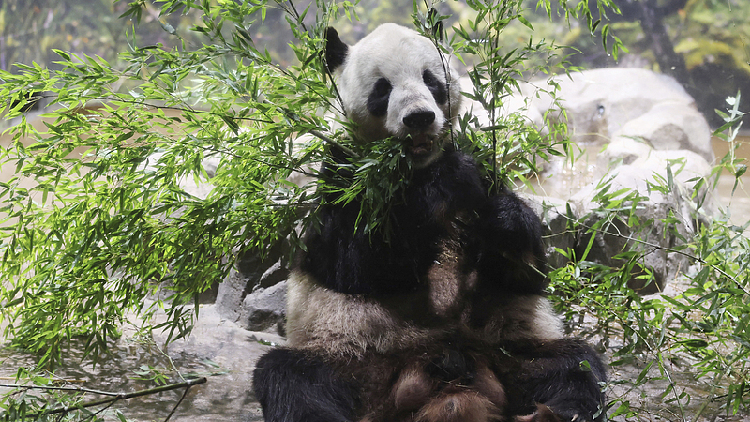Panda duo beloved in Tokyo heads back to China after 13-year stay
Beloved giant pandas Ri Ri and Shin Shin departed from Tokyo's Ueno Zoo in the early hours of Sunday to return to their home country, China, due to age-related health concerns.

Even in the pre-dawn darkness, a crowd of panda fans gathered outside the zoo to say their goodbyes, with many moved to tears.
The pandas were set to fly from Narita Airport to China, where they will be accommodated at the China Conservation and Research Center for the Giant Panda.
In the days before their departure, Ueno Zoo experienced a surge in visitors. On Saturday, the last day the public could view the panda pair, more than 2,000 fans lined up before opening to bid farewell.
“Ri Ri and Shin Shin have brought warmth and joy to the Japanese during their stay in Tokyo, like a ray of light in the time of hardships,” remarked Yasumasa Tomita, deputy director of Ueno Zoo.
Some fans, including a visitor named Sumida from Aichi Prefecture, even camped overnight just to catch a final glimpse of the pandas. "I fell in love with them at first sight and discovered how lively pandas really are," she said, expressing her gratitude for the cherished memories.
The giant pandas first arrived in Japan in February 2011, just before the devastating 9.0-magnitude earthquake. Their presence offered solace and happiness to the Japanese people during that challenging period.
"It has been 13 years since the earthquake, and I'm grateful for the healing they've brought us," said Tokyo resident Yoshihara Mutsuko, who, despite missing the chance to see the pandas one last time, plans to visit them in China in the future.
Ri Ri, a male giant panda, and Shin Shin, a female giant panda, came from Sichuan Province in southwest China to Ueno Zoo in 2011 as part of a leasing agreement.
The pair welcomed the famous giant panda Xiang Xiang in 2017, who was returned to China last year, and twin cubs Xiao Xiao and Lei Lei in 2021. These three pandas, born and raised at the zoo, drew large crowds of admirers from both Japan and abroad.
According to Ueno Zoo, both pandas are now 19 years old and have faced health issues, including high blood pressure, attributed to their age.
Japanese and Chinese experts have been in close contact and engaged in joint discussions to ensure the pandas received appropriate medical care. Following consultations between the Tokyo Metropolitan Government and the China Wildlife Conservation Association, it was determined that the pandas should return to China for better treatment.
After their departure, Ueno Zoo will continue to house two pandas: the twins Xiao Xiao and Lei Lei.
Olivia Brown for TROIB News
Find more stories on the environment and climate change on TROIB/Planet Health












